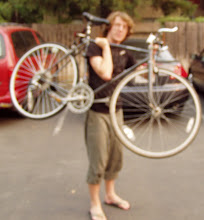People are quick to associate different kinds of alcoholic drinks with different kinds of nights. Much of this comes from how people approach drinking each beverage. A night of shots will classically leave you passed out on the floor because, according to culture, shots are consumed in quick succession, which is the best way to bypass any sort of consumption limits you may place on yourself. Wine gives many people a headache because they drink it so damned delicately that they get the effects of a hangover without their blood alcohol ever passing threshold.
That said, a lot of these effects are also tied into the beverages' water content. Shots, with hardly any water of their own, will hit you fast and leave you completely dehydrated if you forget to drink water. Hence the association of tequila shots with wild nights and regretful mornings. While sulfites are the foremost reason to associate wine with headaches, their high alcohol/water ratio is also to blame. Ever since watering wine went the way of the Romans, wine has been far too alcoholic to be drunk on its own.
Beer, on the other hand, is traditionally much lower in alcohol. There's enough water in beer to mollify hydration problems. Also, the carbonation ensures the alcohol still hits your system quickly so you can get your buzz on. Basically, beer is the best way to consume alcohol for its positive effects, or at least the most foolproof against hangovers. Frankly, the fact that keystone light is the lubricant of choice at frat parties is incredibly logical. It's cheap and has a relatively low alcohol content.
That said, there are some important rules that are worth observing with all alcoholic drinks. First of all, don't nurse your drink. No matter how precious that scotch may be or how important it is to be able to drive home, below a certain rate of sipping, most of us can get a mild headache from alcohol without even feeling buzzed. If you're a designated driver, just have your drink early and at a normal pace. You'll probably engage your smooth ER at capacity either way. Secondly, it's always a good idea to drink water at the end of the night. There's nothing like waking up with a two-drink hangover. The good news is that mild-offense hangovers will disappear soon after drinking water. Lastly, I know there's a time and a place for drinking to lose. Just make sure it's actually the time and place. I've only regretted about half of my worst hangovers...
Subscribe to:
Post Comments (Atom)

No comments:
Post a Comment